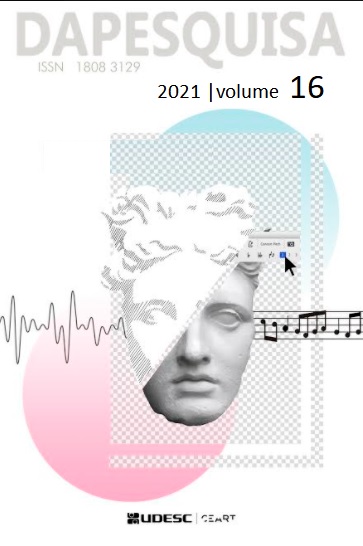Use of industry 4.0 tools for prototyping in the clothing sector
DOI:
https://doi.org/10.5965/18083129152021e0023Keywords:
Clothing and dress - Industry, Rapid prototyping, Three-dimensional modeling, Industry 4.0Abstract
The digital technologies of Industry 4.0, bring benefits to the clothing companies, with the optimization of the processes, the speed of production and the connection between the machines, which allows the integration of the entire value chain. This article discusses the use of tools from industry 4.0 in the prototyping of clothing products. Basic research with theoretical foundations was applied, with a qualitative and descriptive approach. Data collection was carried out in books, scientific articles, theses and dissertations, bringing the principles and pillars of industry 4.0, as well as the tools that enable 3D (three-dimensional) prototyping of clothing products. The relevance of the research is highlighted, considering that the global analysis of the technical feasibility of the product, which assesses the layout of the modeling, the dressability, the ergonomic aspects and the trim of the pieces, are done in a virtual environment, thus dispensing: the plotting of the molds, selection and preparation of the fabric for cutting, tracing of the scratch and cutting of the molds and assembly (preparation and sewing) of the garment model pieces. The research results reveal that it is possible to be effective in the production and reduction of working time and sustainable benefits with the use of 3D prototyping tools for clothing products, in social, environmental and financial terms.
Downloads
References
ALMEIDA, P. S. de. Indústria 4.0: princípios básicos, aplicabilidade e implantação na área Industrial. Editora: Saraiva Educação, 2019.
ASHTON, K. A história secreta da criatividade. Rio de Janeiro: Sextante, 2016.
BRUNO, F. da S. A quarta revolução industrial do setor têxtil e de confecção: a visão de futuro para 2030. São Paulo : Estação das Letras e Cores, 2016. Disponível em: https://bibliotecas.sebrae.com.br/chronus/ARQUIVOS_CHRONUS/bds/bds.nsf/b4a04ab45a138e42aec2a4762f18b5c8/$File/7585.pdf. Acesso em: 24 nov. 2020.
CHATAIGNIER, G. Fio a fio: tecidos, moda e linguagem. São Paulo: Estação das Letras, 2006.
FOLHA informativa sobre COVID-19. In: OPAS/OMS . Brasília : Organização Pan-Americana da Saúde, [2020]. Disponível em:
https://www.paho.org/bra/index.php?option=com_content&view=article&id=6101:covid19&Itemid=875. Acesso em: 19 out. 2020.
GAIA, P. A quarta revolução industrial e as tendências tecnológicas no segmento de equipamentos, máquinas e acessórios industriais. O Papel: revista mensal de tecnologia em celulose e papel, [s. l.], v. 77, n. 5, p. 21-25, 2016. Disponível em: http://www.celuloseonline.com.br/47807-2/. Acesso em: 20 out. 2020.
LIDÓRIO, C. F. Tecnologia da confecção. Araranguá: Instituto Federal de Educação, Ciência e Tecnologia de Santa Catarina, 2008. Disponível em: https://wiki.ifsc.edu.br/mediawiki/images/temp/5/52/20080729221515!Apostila_CTQ_edi%C3%A7%C3%A3o_1.pdf. Acesso em: 20 nov. 2020.
MONTEMEZZO, M. C. de F. S. Diretrizes metodológicas para o projeto de produtos de moda no âmbito acadêmico. 2003. Dissertação (Mestrado em Desenho Industrial) - Universidade Estadual Paulista, Faculdade de Arquitetura, Artes e Comunicação, Bauru, 2003. Disponível em: https://repositorio.unesp.br/handle/11449/97020. Acesso em: 30 nov. 2020.
PIRES, G. A. O CAD 3D aplicado na validação de protótipos na indústria do vestuário. 2015. Dissertação (Mestrado em Design) - Universidade Estadual Paulista, Faculdade de Arquitetura, Artes e Comunicação, Bauru, 2015. Disponível em: https://repositorio.unesp.br/bitstream/handle/11449/132882/pires_ga_me_bauru_int.pdf?sequence=3&isAllowed=y. Acesso em: 27 nov. 2020.
RÜßMANN, M. et al. Industry 4.0: The future of productivity and growth in manufacturing industries. In: Boston Consulting Group, 9 Apr. 2015. Disponível em: https://www.bcg.com/pt-br/publications/2015/engineered_products_project_business_industry_4_future_productivity_growth_manufacturing_industries .Acesso em: 23 nov. 2020.
SACOMANO, J. B. et al. Indústria 4.0: conceitos e fundamentos. São Paulo: Blucher, 2018.
SCHWAB, K. A quarta revolução industrial. São Paulo: Edipro, 2016.
SILVEIRA, I.; PULS, L. M. Modelo de gestão do conhecimento: capacitação da modelagem de vestuário. Florianópolis: UDESC, 2017. (Teses de Moda; v. 2). Disponível em: https://www.udesc.br/arquivos/ceart/id_cpmenu/3348/livro_teses_de_moda_icleia_silveira_15232959222134_3348.pdf. Acesso em: 23 nov. 2020.
SILVEIRA, I. Um modelo para capacitação dos instrutores do sistema CAD para vestuário e dos modelistas, com foco na gestão do conhecimento.2011. Tese (Doutorado em Design) - Pontifícia Universidade Católica, Rio de Janeiro, 2011. Disponível em: https://repositorio.unesp.br/bitstream/handle/11449/132882/pires_ga_me_bauru_int.pdf?sequence=3&isAllowed=y. Acesso em: 14 dez. 2020.
SPRICIGO, B. Resumo sobre Indústria 4.0: entenda rapidamente os conceitos e benefícios. In: Pollux. Joinville, 16 mar. 2018. Disponível em: https://www.pollux.com.br/blog/resumo-sobre-industria-4-0-entenda-rapidamente-os-conceitos-e-beneficios/. Acesso em: 23 nov. 2020.
TORI, R. Desafios para o Design de Informação em Ambientes de Realidade Aumentada. InfoDesign - Revista Brasileira de Design da Informação, São Paulo, v. 6, n. 1, p.46 – 57, 2009. DOI: https://doi.org/10.51358/id.v6i1.70. Disponível em: https://www.infodesign.org.br/infodesign/article/view/70. Acesso em: 13 nov. 2020. DOI: https://doi.org/10.51358/id.v6i1.70
TREPTOW, D. Inventando moda: planejamento de coleção. 5. ed. Brusque: do Autor, 2013.
VASQUES, R. S. ; PELEGRINI, S. C. A. O produto têxtil: moda e história na década de 1960. In: COLÓQUIO DE MODA, 7., 2011, Maringá. Anais eletrônicos [...]. Maringá : Cesumar, 2011. Disponível em: https://www.coloquiomoda.com.br/anais/Coloquio%20de%20Moda%20-%202011/GT08/Comunicacao-Oral/CO_89593O_Produto_Textil_Moda_e_Historia_na_Decada_de_1960.pdf. Acesso em: 20 nov. 2020.
Published
How to Cite
Issue
Section
License
Copyright (c) 2021 Leide Laura Bittencourt, Icléia Silveira, Lucas da Rosa, Daniela Novelli

This work is licensed under a Creative Commons Attribution 4.0 International License.
Authors who publish in this journal agree to the following terms:
The authors retain the copyright and grant the journal the right of first publication, with the study being simultaneously licensed under the Creative Commons Attribution-Noncommercial License, which allows the sharing of work with acknowledgment of authorship and initial publication in this journal.
This journal, following the recommendations of the Open Access movement, provides public access to all its content, following the principle that free access to research leads to a greater global exchange of knowledge.
Plagiarism in all its forms constitutes unethical publication behavior and is unacceptable. The Journal DAPesquisa reserves the right to use software or other methods of detecting plagiarism to analyze submitted works.





